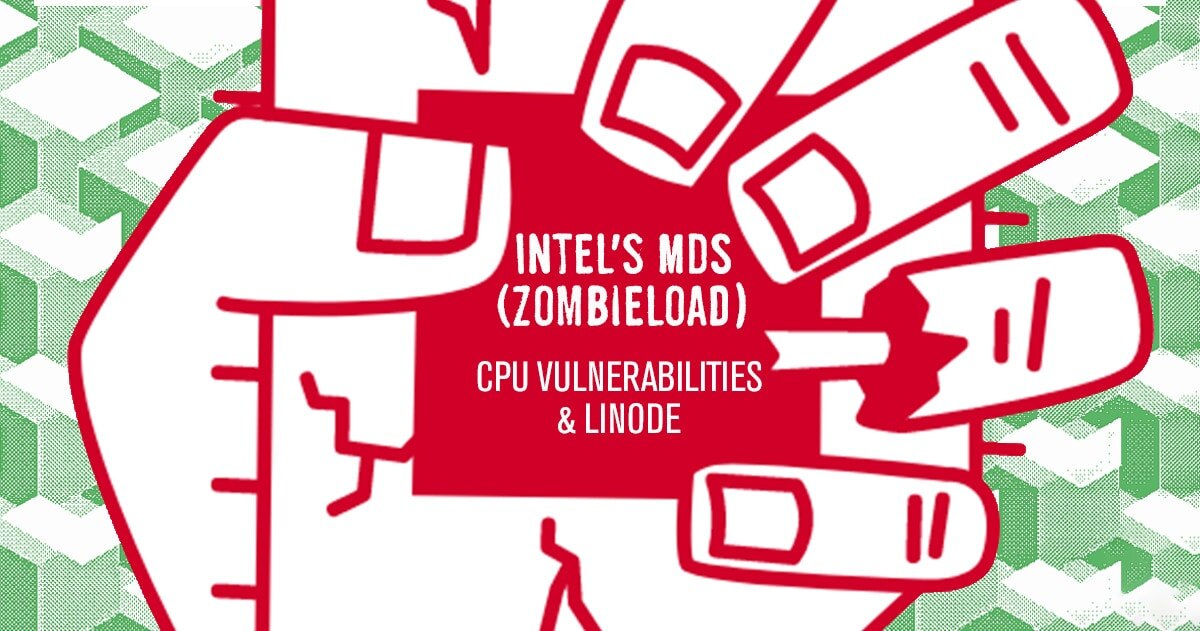Cette semaine, Intel a rendu public un groupe de vulnérabilités de processeurs connues sous le nom de Microarchitectural Data Sampling (MDS)également connu sous le nom de "ZombieLoad". MDS affecte les systèmes qui hébergent des machines virtuelles provenant de différents domaines de sécurité et/ou auxquels le propriétaire du système ne fait pas entièrement confiance, ce qui inclut l'infrastructure Linode et les Linodes eux-mêmes. Ce guide contient des informations détaillées supplémentaires sur ces vulnérabilités ainsi que sur leur atténuation.
Nous avons commencé à prendre des mesures d'atténuation et nous prévoyons une atténuation complète de notre flotte dans les semaines à venir. Ces efforts d'atténuation peuvent nécessiter une interruption de vos systèmes courants, mais nous communiquerons clairement toute maintenance programmée ou coordination requise par nos clients par le biais d'un ticket de support.
Pour remédier à ces vulnérabilités, nous avons publié un nouveau noyau (5.1.2) avec des mesures d'atténuation en place, alors assurez-vous de sélectionner ce noyau dans le profil de configuration de votre Linode, puis redémarrez. Si vous utilisez un noyau fourni par une distribution, vous devrez mettre à jour votre noyau en conséquence. Comme toujours, vous devez également vous assurer que votre Linode est à jour et sécurisé.
Nous vous tiendrons au courant dans les semaines à venir, au fur et à mesure de nos efforts d'atténuation.









Commentaires (13)
Is the “Latest 64-bit” Kernel going to be sufficient or do all servers need to be using the 5.x kernel?
Hey, Jim. At the moment, the “Latest 64-bit” kernel is not patched for MDS — we’ve delayed changes due to a kernel bug involving inaccurate ‘uptime’ reports. We instead recommend booting into 5.1.2-x86_64-linode124 for 64-bit systems, or 5.1.2-x86-linode144 for 32-bit systems. Once the kernel bug has been completely resolved, you could then switch back to the “Latest”.
Linode offer two 5.1.2 kernels. One is 5.1.2-x86-linode144 and caused kernel panic on Debian 9. 5.1.2-x86_64-linode124 works. Thanks to support for guiding me to this point. It should be added to the post here.
Hi there, John. The 5.1.2-x86-linode144 kernel is designed for 32-bit systems. It will not work properly on 64-bit systems. For 64-bit systems you will want to use the 5.1.2-x86_64-linode124 kernel. For all 64-bit systems you will want to look for the kernels that include “_64” in the title.
Any particular reason for the “latest-kernel” to stuck at 4.18.6 ?
Update?
Great and useful post, Thanks for sharing
Bookmarking the blog for future reference.
What is the expected performance impact of the mitigation?
Viktor: We don’t anticipate performance impacts coming from ZombieLoad mitigation. However, disabling HyperThreading as part of our mitigation strategy for speculative operation vulnerabilities poses a clear challenge regarding performance, so accordingly we’ve been working to minimize its impact on our platform. (You can find more discussion on HyperThreading here.)
If you’re seeing degraded performance on any of your Linodes, please reach out to us so we can help investigate and find a solution.
Can we use the new kernel for Debian 7 machines?
Hi Mike – Yes. No issues with our latest kernel and Debian 7. I’d recommend reading through our Reboot Survival guide, though, if it’s been awhile since you’ve needed to reboot some of your machines:
> https://www.linode.com/docs/guides/reboot-survival-guide/
If you’ve regularly kept your server up to date, issued reboots periodically and have always used the latest kernel, you’re more likely to be okay if you continue to use it. Having a restore plan in place in the event anything goes wrong is always recommended, though, since there are a lot of variables at play.
Other posts mentioned a live-migration capability now. That doesn’t work for host updates?
Are you moving towards the only needed reboots to be for upgrade/downgrades and updating our kernel?
Hi Avi – Technically speaking, for small scale host updates, live migrations would work. Though since CPU vulnerability mitigation is a much larger effort, it’s logistically more efficient to cold migrate servers to patched hosts, or apply the needed patches during the maintenance window. As for your second question:
> Are you moving towards the only needed reboots to be for upgrade/downgrades and updating our kernel?
Yes, though this is a long term effort, and I don’t have anything immediate to share regarding an ETA.